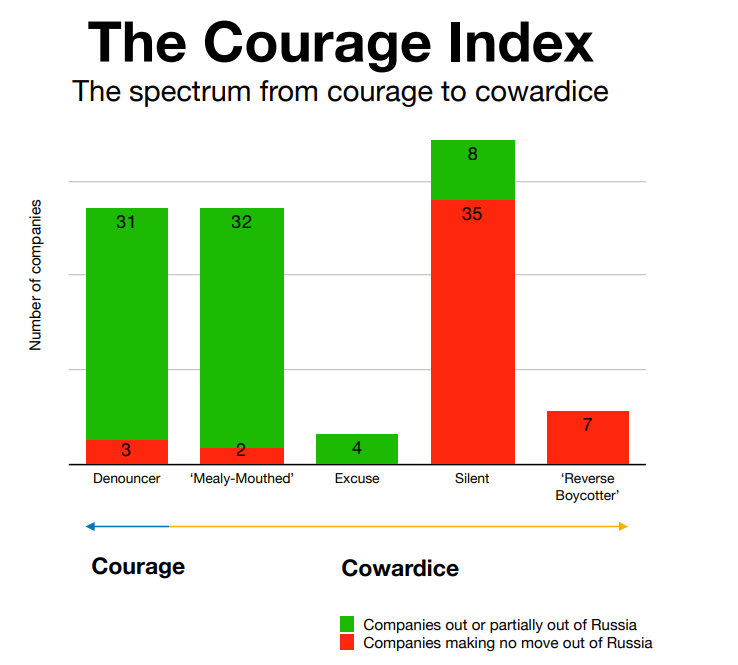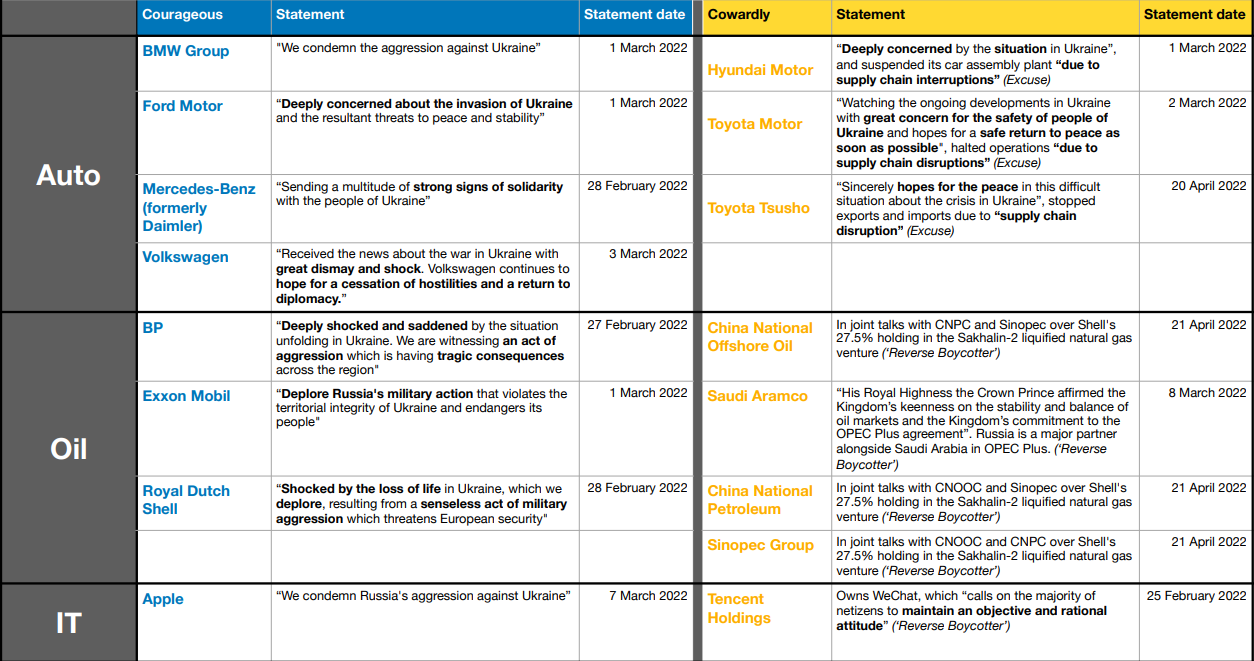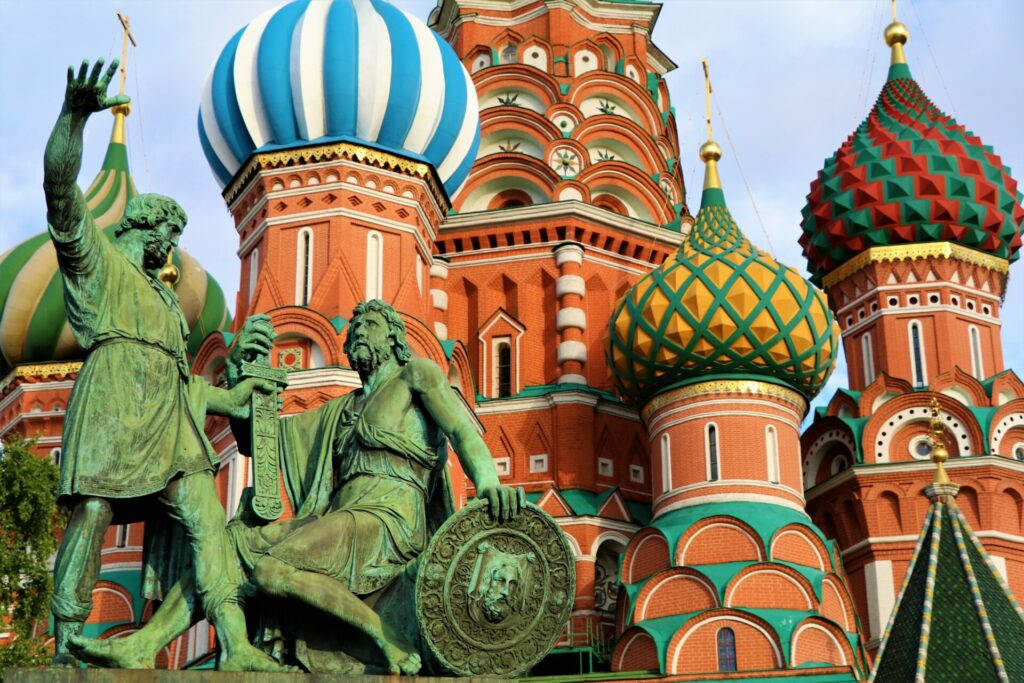A new study indicates that companies that were once active in the Russian market or continue to operate there are reluctant to denounce the Russian regime or its war in Ukraine.
According to the Moral Rating Agency (MRA), only 28% of companies involved in the Russian market have condemned the invasion, with most making “cowardly” statements or excuses.
The vast majority (35%) of corporations involved in the Russian market have remained completely silent about the war in Ukraine; 6% have even increased their activities as a result of the war.
“There are a lot of temptations to be a corporate chicken and not call out Russia. We believe that the main driver among those leaving Russia is to keep their options open in the future if there is a ceasefire. Companies know they will burn their bridges if they denounce Russia or Putin. They are acting commercially, not morally,” says Mark Dixon, founder of the MRA.
In total, the MRA believes that around 72% of the 122 largest corporations in the Russian market have acted “cowardly” in the face of Russia’s invasion of Ukraine.

Credit: Moral Rating Agency
74% of companies who have remained in the Russian market have simply refused to make a statement about the war. Only five corporations who have remained in Russia have made statements against the war.
“Companies opt to denounce Russia for two reasons. Some put morality above money. Others think they won’t be going back to Russia while Putin remains in power and decide to profit from the moral kudos of speaking out,” Dixon noted.
Don't mention the war
Most companies who leave the Russian market, or quietly maintain some presence in Russia, opt to speak out against the war in Ukraine, but ultimately use non-confrontational or watered-down phrasing in their statements.
“Our thoughts are with all those impacted by the continuing conflict in Ukraine,” said HSBC bank, “It’s a great tragedy and very disappointing to see a humanitarian disaster,” said computer company Dell, and car manufacturer Chevron simply speaks of a “tragic situation.”
By contrast, some companies – such as Royal Dutch Shell – do show moral fibre, criticising the Russian aggression and withdrawing fully from the Russian market. The company said that it was “shocked by the loss of life in Ukraine… resulting from a senseless act of military aggression which threatens European security.”
Likewise, Microsoft stated that “Like the rest of the world, we are horrified, angered, and saddened by the images and news coming from the war in Ukraine and condemn this unjustified, unprovoked, and unlawful invasion by Russia.”
The MRA states that only 28% of the largest corporations made “brave” statements against the war such as those made by Shell and Microsoft. “Shell is the 14th most exposed company in the world to Russia. It took a moral stand even though it had a lot to lose. Putin’s 1 July decree to expropriate the Sakhalin II gas and oil project from Shell and others wasn’t a mere coincidence.”

Credit: Moral Rating Agency
But many companies have simply chosen to remain silent. These include some that decided to leave the market, such as Airbus, Comcast, and Panasonic.
“Moving out of Russia without saying a word is the depth of cowardice,” Dixon believes. “When a company slips out silently or avoids the elephant in the room, it undermines the exodus momentum by diluting peer pressure.”
Related News
- 47 leading corporations at risk of Russian expropriation
- ‘Moralwashing’: Major companies fail to leave Russian market
Most of those that do not comment publically – largely companies from Asia – continue to operate in the Russian market. The majority of major companies from China, Korea, and Japan have opted to issue no public statement or even announce their intention to increase their activities in Russia.
The MRA provides a full overview of the moral ratings, public statements, sale of stakes, and the public intentions of the world’s largest companies active in Russia, which can be viewed on the organisation’s website.

